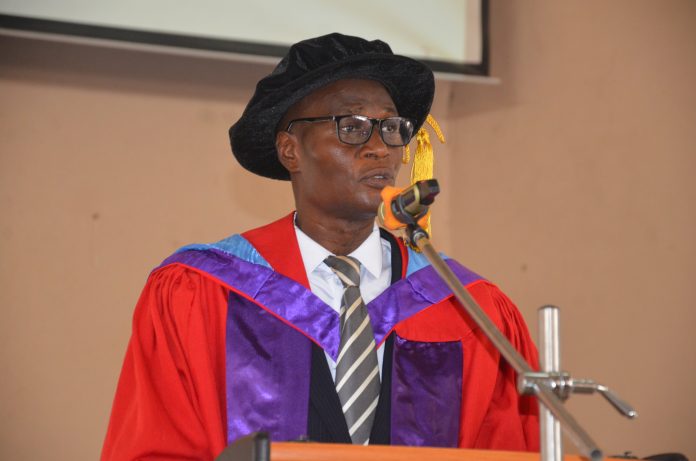A professor of Urban and Regional Planning at the Federal University of Technology Akure, FUTA, Michael Oyinloye, has decried the growing spate of decay and environmental degradation occasioned by unbridled rapid development in cities and urban centres of the country. Professor Oyinloye raised the alarm while delivering the 166th inaugural lecture of the Federal University of Technology Akure, FUTA titled “Wild, Wide Cities: A Moderating Land Use Management Tool kit,” on the 16th of April 2024.
According to Professor Oyinloye , uncontrolled urbanization in the country come with some associated problems including, “Urban housing degeneration and poverty, high death rate, disease, epidemic, pollution and low biodiversity index.” He said because of the many problems scholars often describe the urbanization process in Nigeria as “backwash urbanization because it is accompanied by social, economic and environmental problems with resultant effects on city patterns, forms and functions.”
Professor Oyinloye said most of the available spaces in our cities are covered with residential buildings without any effort to ensure the allocation of space for other essential activities such as community services, transportation, recreation, health facilities and commercial services. He said in South-Western Nigeria, land resources are changing at a rapid rate – at local to national scales therefore, “The ecosystems on which South-Western Nigerian societies depend on are showing many signs of stress.” He said a study conducted by his team also revealed that accessibility to health facilities is very poor due to poor road network while traffic congestion and gridlock are resultant effect of lack of master plan and proper planning.
He said the tremendous expansion that urban cities have experienced has created environmental degradation consequent to rapid rural to urban migration. According to him, rapid developments in cities pose several challenges including problems associated with urbanization for urban managers and policy makers and meeting these challenges requires access to timely and reliable information.
On the way out of the problem, Professor Oyinloye advised integration of deployment of modern Geographic Information System (GIS) techniques, regulation of land acquisition, promotion of housing quality, effective planning, regulation of land use, regional development programmes and promotion of urban agriculture into the planning process to stem the growing challenges and problems caused by rapid development in cities and urban areas.
He called for government control over private land use through zoning where acquired land is laid out, planned, zoned, improved and allocated equitably on a leasehold basis. He also opined that vertical expansion in the form of storey buildings should be encouraged instead of horizontal expansion as this will reduce encroachment to arable land which is being eaten up on a daily basis.
The lecturer said that in order to manage urban growth in a sustainable manner, growth must be adequately monitored. He pointed out that effective monitoring using Geographical Information System and remote sensing will enable policy makers, formulate appropriate policies and action plans to prevent environmental degradation and encourage effective management of land use changes for sustainable development
Oyinloye recommended the establishment of modern centres of surveying and mapping such as photogrammetry and remote sensing and up to date training for staff so as to have indigenous manpower to protect the environment, explore and exploit its natural resources, improve its economy and food production capacity so that our country will be self-reliant.
In her capacity as chairman of the occasion, the Vice Chancellor Professor Adenike Oladiji commended the brilliant delivery by Professor Oyinloye. She described him as an innovative teacher, researcher, a leader and mentor of uncommon mental capacity whose works have positively impacted the society.




